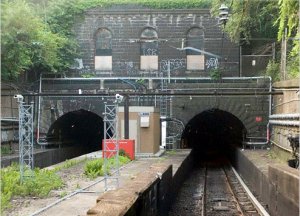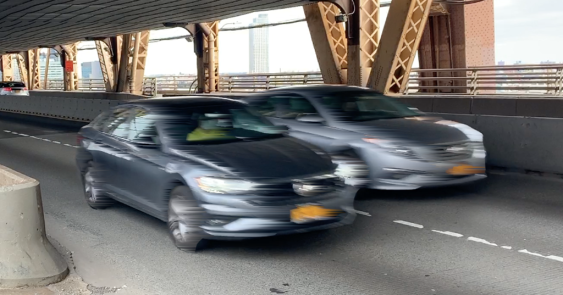The New Britain-Hartford Busway will provide commuters traveling between New Britain and Hartford a more efficient and cost-effective alternative to the current daily commute on Interstate 84, the region’s most congested highway. The dedicated busway will provide the area’s relatively large transit-dependent population better access to the 81,000 jobs along the route and across the busway’s 11 stations, promote redevelopment opportunities along the 9.4-mile corridor, and provide faster transit access to major activity centers throughout the area. The FTA anticipates an overall federal commitment of $275.3 million to the $572.7 million project.
Denver’s 13-station Eagle Commuter Rail project, which will add nearly 23 miles of service to Denver’s transit system connecting downtown Denver and Denver International Airport to the east with numerous communities in between. Ultimately, the FTA projects contributing approximately $1 billion towards the $2 billion project, which is expected to create 5,400 jobs during peak construction. This is one component of FasTracks, a multi-billion dollar, multi-year transit-expansion program that will help Denver support smart, sustainable growth, create jobs, and compete for business for decades to come.
The Rapid C Bus Rapid Transit Line will help to relieve traffic congestion in West Seattle, Washington, improve access to downtown Seattle’s 150,000 jobs, and connect the popular Washington State Ferries serving Vashon Island and Southworth among other spots along the corridor. Nearly $21.3 million in discretionary 2011 funds has been budgeted for construction of the $28.4 million project. The C Line, which should be fully operational by the fall of 2012, is expected to create approximately 180 construction, manufacturing, and transportation jobs during the peak construction period.
The Central Corridor light rail project will connect Minnesota's two largest cities—Minneapolis and Saint Paul—by light rail for the first time. The FTA recently signed a Full Funding Grant Agreement making a long-term financial commitment to the $957 million light rail line, which will carry 40,000 riders along this busy 11-mile corridor. The project, which includes 18 new stations and 31 new rail cars, is scheduled to open in 2014. In addition to serving the downtown areas of the Twin Cities, the Central Corridor line will provide more efficient access to the University of Minnesota, the Midway area, the State Capitol complex, Target Field and the Metrodome, and many neighborhoods in between.
The Austin MetroRapid is a 37.5-mile, 40-stop, bus rapid transit (BRT) system. The FTA is supporting the local vision with a $24.2 million investment in 2011 towards the nearly $50 million project. The project, which is scheduled to open in the summer of 2013, is the first phase of Capitol Metropolitan Transit Authority’s comprehensive and forward-leaning All Systems Go ten-corridor long-range transit plan.





